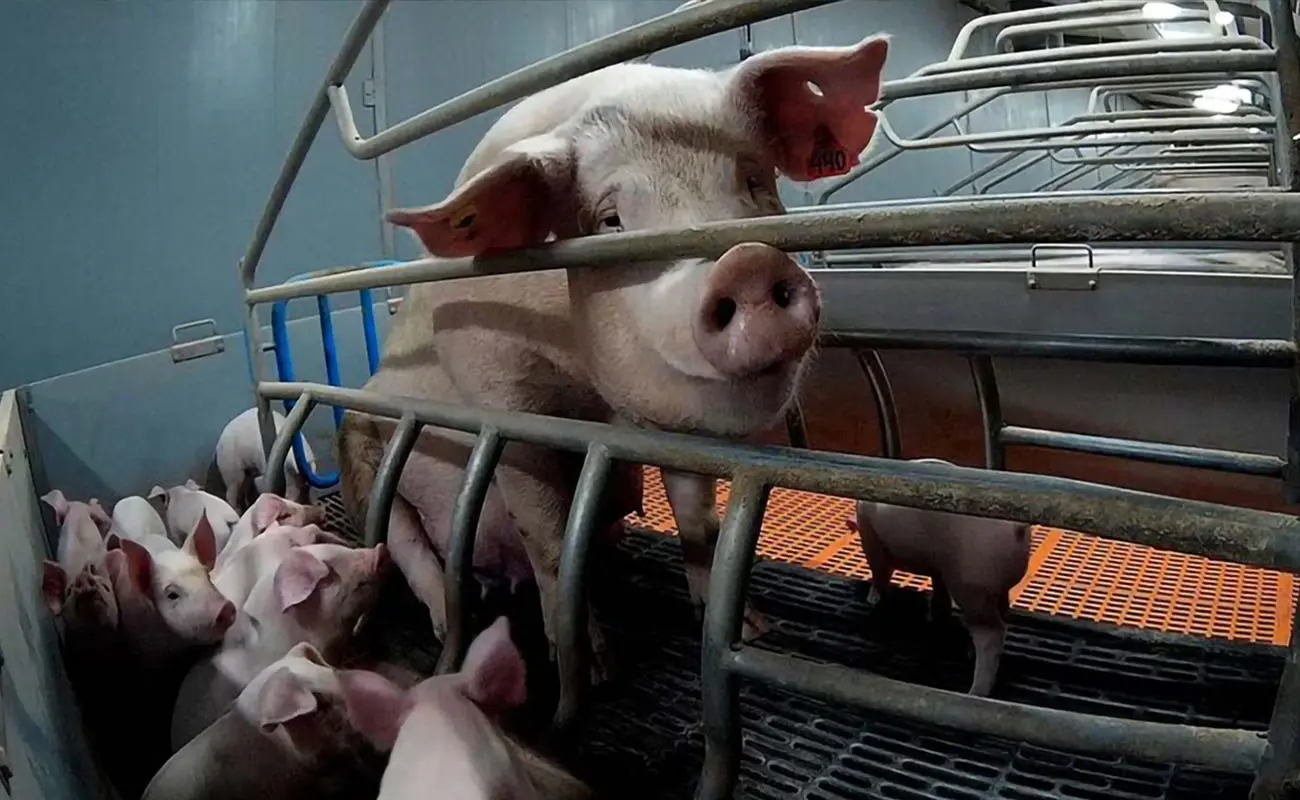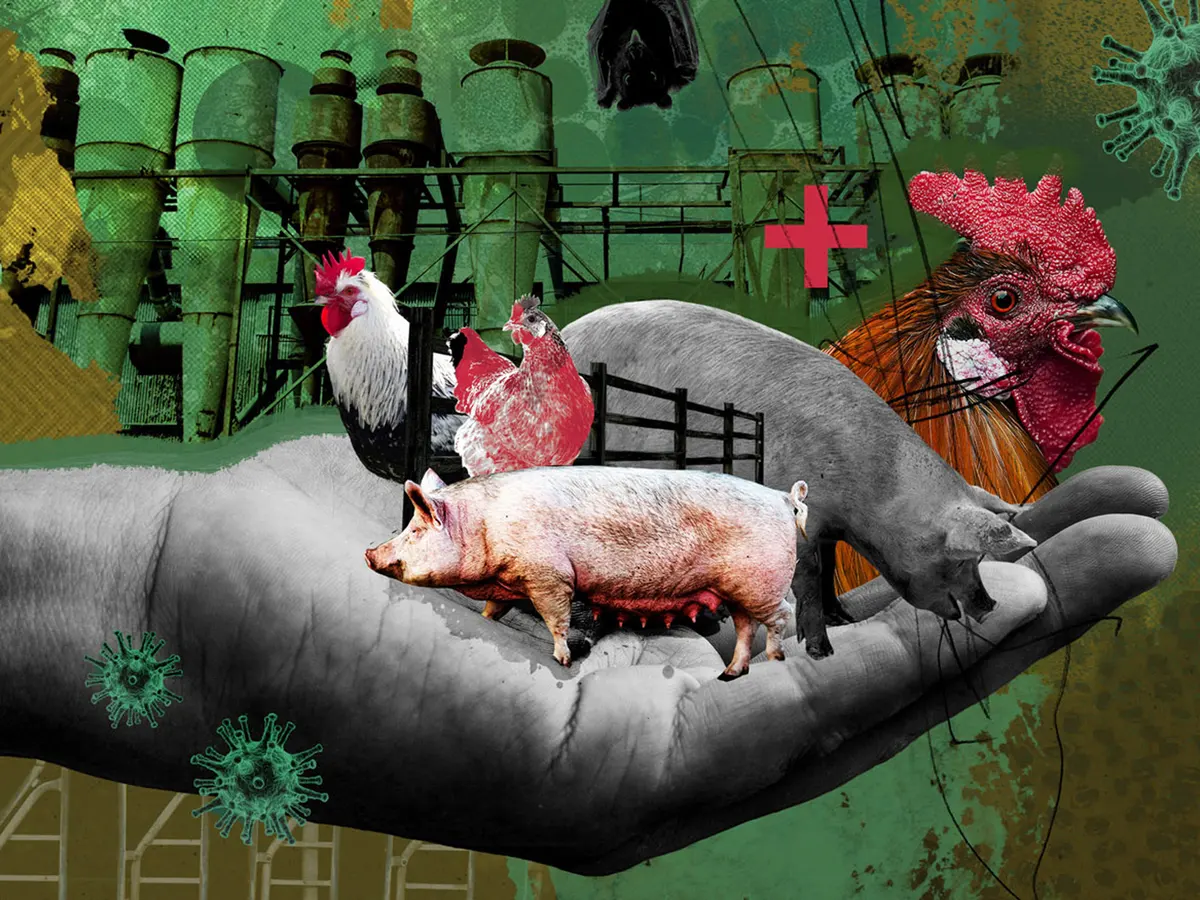Phần "Vấn đề" làm sáng tỏ những hình thức đau khổ lan rộng và thường bị che giấu mà động vật phải chịu đựng trong một thế giới lấy con người làm trung tâm. Đây không chỉ đơn thuần là những hành vi tàn ác ngẫu nhiên mà còn là triệu chứng của một hệ thống lớn hơn - được xây dựng dựa trên truyền thống, sự tiện lợi và lợi nhuận - bình thường hóa việc bóc lột và tước đoạt những quyền cơ bản nhất của động vật. Từ các lò mổ công nghiệp đến các đấu trường giải trí, từ lồng thí nghiệm đến các nhà máy may mặc, động vật phải chịu đựng những tổn hại thường được coi nhẹ, phớt lờ hoặc biện minh bằng các chuẩn mực văn hóa.
Mỗi tiểu mục trong phần này hé lộ một tầng lớp tổn hại khác nhau. Chúng tôi xem xét những nỗi kinh hoàng của việc giết mổ và giam cầm, nỗi đau đằng sau lông thú và thời trang, và những chấn thương mà động vật phải đối mặt trong quá trình vận chuyển. Chúng tôi đối mặt với tác động của các hoạt động chăn nuôi công nghiệp, cái giá phải trả về mặt đạo đức của việc thử nghiệm trên động vật, và việc bóc lột động vật trong các rạp xiếc, sở thú và công viên biển. Ngay cả trong nhà của chúng ta, nhiều động vật đồng hành cũng phải đối mặt với tình trạng bị bỏ rơi, lạm dụng sinh sản hoặc bị bỏ rơi. Và trong tự nhiên, động vật bị di dời, săn bắt và bị thương mại hóa - thường vì lợi nhuận hoặc sự tiện lợi.
Bằng cách khám phá những vấn đề này, chúng tôi mời gọi sự suy ngẫm, trách nhiệm và thay đổi. Vấn đề không chỉ nằm ở sự tàn ác—mà còn ở cách lựa chọn, truyền thống và ngành nghề của chúng ta đã tạo ra một nền văn hóa thống trị những người dễ bị tổn thương. Hiểu được những cơ chế này là bước đầu tiên để phá bỏ chúng—và xây dựng một thế giới nơi lòng trắc ẩn, công lý và sự chung sống dẫn dắt mối quan hệ của chúng ta với mọi sinh vật.
Chăn nuôi công nghiệp là một thực tiễn phổ biến trong ngành công nghiệp thực phẩm, nhưng nó thường gây ra tổn thất lớn cho các loài động vật. Việc đối xử vô nhân đạo và sự tàn ác đối với động vật được nuôi để sản xuất thực phẩm không chỉ là vấn đề đạo đức mà còn có những tác động nghiêm trọng đến môi trường và sức khỏe. Để đáp lại những lo ngại này, nhiều người đang chuyển sang lối sống thuần chay như một cách hiệu quả để chống lại sự tàn ác trong chăn nuôi công nghiệp. Bằng cách loại bỏ sự ủng hộ đối với những thực tiễn này và lựa chọn chế độ ăn dựa trên thực vật, các cá nhân có thể tạo ra tác động tích cực đến phúc lợi động vật, sức khỏe cá nhân và môi trường. Trong bài viết này, chúng ta sẽ khám phá những lý do tại sao việc ăn chay là một phản ứng mạnh mẽ đối với sự tàn ác trong chăn nuôi công nghiệp, nêu bật những lợi ích của nó và cung cấp các mẹo thực tế để chuyển sang lối sống thuần chay. Hiểu về sự tàn ác trong chăn nuôi công nghiệp Sự tàn ác trong chăn nuôi công nghiệp đề cập đến việc đối xử vô nhân đạo với động vật được nuôi để sản xuất thực phẩm. Động vật trong các trang trại công nghiệp thường…


























































